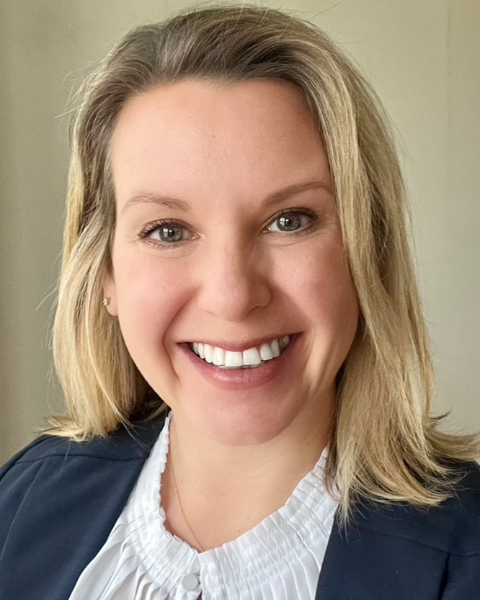Category: Global Mental Health
Symposium 125 - Sustainable and Responsive Multi-problem CBT across Global Contexts
Level of Familiarity: Basic to Moderate
Recommended Readings: 1. Murray, L. K., Haroz, E. E., Pullmann, M. D., Dorsey, S., Kane, J., Augustinavicius, J., ... & Bolton, P. (2019). Under the hood: lay counsellor element use in a modular multi-problem transdiagnostic intervention in lower resource countries. the Cognitive Behaviour Therapist, 12, e6.
2. Pedersen, G. A., Lakshmin, P., Schafer, A., Watts, S., Carswell, K., Willhoite, A., ... & Kohrt, B. A. (2020). Common factors in psychological treatments delivered by non-specialists in low-and middle-income countries: Manual review of competencies. Journal of behavioral and cognitive therapy, 30(3), 165-186.
3. Ola, B. A., & Atilola, O. (2019). Task-shifted interventions for depression delivered by lay primary health-care workers in low-income and middle-income countries. The Lancet Global Health, 7(7), e829-e830.,
4. Purgato, M., Uphoff, E., Singh, R., Pachya, A. T., Abdulmalik, J., & van Ginneken, N. (2020). Promotion, prevention and treatment interventions for mental health in low-and middle-income countries through a task-shifting approach. Epidemiology and psychiatric sciences, 29, e150.
5. Mannarino, A. P., Cohen, J. A., & Deblinger, E. (2014). Trauma-focused cognitive-behavioral therapy. Evidence-based approaches for the treatment of maltreated children: Considering core components and treatment effectiveness, 165-185.
6. Singla, D. R., Hollon, S. D., Fairburn, C. G., Dimidjian, S., & Patel, V. (2019). The roles of early response and sudden gains on depression outcomes: Findings from a randomized controlled trial of behavioral activation in Goa, India. Clinical Psychological Science, 7(4), 768-777
7. Murray, L. K., Dorsey, S., Haroz, E., Lee, C., Alsiary, M. M., Haydary, A., ... & Bolton, P. (2014). A common elements treatment approach for adult mental health problems in low-and middle-income countries. Cognitive and behavioral practice, 21(2), 111-123. www.cetaglobal.org
, 8. Verhey, I. J., Ryan, G. K., Scherer, N., & Magidson, J. F. (2020). Implementation outcomes of cognitive behavioural therapy delivered by non-specialists for common mental disorders and substance-use disorders in low-and middle-income countries: a systematic review. International Journal of Mental Health Systems, 14(1), 1-14.,
Abstract 3:
Ukraine - Complex Emergency Fact Sheet #8, Fiscal Year (FY) 2023 - Ukraine | ReliefWeb
2. Bogdanov, S., Augustinavicius, J., Bass, J. K., Metz, K., Skavenski, S., Singh, N. S., & Bolton, P. (2021). A randomized-controlled trial of community-based transdiagnostic psychotherapy for veterans and internally displaced persons in Ukraine. Global Mental Health, 8, e32.
3. Murray, L. K., Haroz, E. E., Doty, B., Singh, N. S., Bogdanov, S., Bass, J., & Bolton, P. (2018). Testing the effectiveness and implementation of a brief version of the Common Elements Treatment Approach (CETA) in Ukraine: a study protocol for a randomized controlled trial. Trials, 19(1), 1-16.
4. Doty, B., Haroz, E. E., Singh, N. S., Bogdanov, S., Bass, J. K., Murray, L. K., ... & Bolton, P. A. (2018). Adaptation and testing of an assessment for mental health and alcohol use problems among conflict-affected adults in Ukraine. Conflict and Health, 12(1), 1-13.
-
.jpeg)
Laura Murray, Ph.D. (she/her/hers)
Senior Research Scientist
Johns Hopkins University School of Public Health
Houston, Texas -
AN
Amanda Nguyen, M.A., Ph.D. (she/her/hers)
University of Virginia
Earlysville, Virginia -

Caleb Figge, Ph.D.
Research Scientist
Johns Hopkins University School of Public Health
Baltimore, Maryland -
KM
Kristina Metz, Ph.D.
Johns Hopkins University School of Public Health
Baltimore, Maryland -
SS
Srishti Sardana, Ph.D. (she/her/hers)
Johns Hopkins University
Durham, North Carolina -

Stephanie Skavenski, M.A. (she/her/hers)
Senior Research Associate
Johns Hopkins University School of Public Health
Baltimore, Maryland -
AG
Anna Garriott, M.S., MSW (she/her/hers)
Johns Hopkins University School of Public Health
Baltimore, Maryland
Chair(s)
Discussant(s)
Presenter(s)
\Cognitive Behavioral Therapy (CBT) has increasingly been shown to be highly effective in many low- and middle-income countries (LMICs) when delivered by lay providers and non-specialists (1,2,3,4). This includes interventions like Cognitive Processing Therapy, Trauma focused-CBT (5), Behavioral Activation (6) and the Common Elements Treatment Approach (7). However, scaling and sustainability efforts of CBT-based EBTs globally are hindered by 1) widespread barriers to building local mental health workforces given the preponderance of expert-based training programs, 2) implementation of single-problem, restricted age-range treatments to address multiproblem case presentations across the lifespan, including high risk safety cases, and 3) challenges in building adaptive and responsive systems of clinical care in humanitarian settings. We leverage implementation strategies studied globally to help us understand how to best build scalable and sustainable CBT systems of care in LMIC contexts (8).
This symposium takes a unique look at innovative applications of CBT training and treatment, bringing healing across the globe to a range of ages and populations, particularly among the underserved and in humanitarian crises. We will discuss implementation of a technology-assisted train-the-trainer approach in Zambia for building scalable and sustainable CBT (CETA)) clinical workforces, in which newly trained CBT trainers successfully supervised non-mental health professionals in delivering CETA to fidelity, with client-level clinical effectiveness and over 80% retention. The next presentation will discuss how CBT is working within local health care clinics in South Africa as a comprehensive approach to Safety Planning (reducing severity and frequency of IPV). The third presentation will describe the development and implementation of a responsive and adaptive MHPSS system of CBT care for Ukrainians, including activating existing mental health workforces to respond to an emergent humanitarian crisis, continuing to bring healing to Ukrainians as they surpass the one-year anniversary of the war, and strengthening existing health care systems by prioritizing sustainable training and treatment provision. Dr. Laura Murray, a CBT expert and developer of CETA, will wrap by synthesizing findings and learnings across presentations and implementation contexts to examine global CBT implementation strategies that lead to healing and recovery.
Keywords: community-based assessment/intervention, trauma, diverse and vulnerable populations, underserved populations, human rights/social justice and equity
Learning Objectives:
- Overview of training, supervision, and capacity building in CETA to increase safety, decrease violence, and improve treatment outcomes.
- Discussion of data and evidence from CETA approach demonstrating its scalability and sustainability in low-resource settings.
- Describe adaptation of CETA across the lifespan, and in conflict settings (warzones & among chronically ill patients in situations of violence).
- Explore social determinants of health in key populations across CETA programs: veterans, HIV-infected, survivors of violence & conflict.
- At the end of the session, the learner would have acquired knowledge and basic skills in the dissemination of CETA for the underserved globally.

